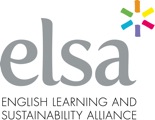Search
ELSA takes leading role on education in new SDG report
A Mountain to climb in solving the world’s problems in a sustainable way
ELSA has played a major role in a new report on the UK's contribution to the UN's Sustainable Development Goals (SDGs).
A network of leading companies, think tanks, charities, universities, trade unions and professional bodies has reached an important milestone in measuring the UK’s performance against the United Nations Sustainable Development Goals (SDGs).
Organisations including WWF-UK, Good Energy, the Open University, Gaia Education, the University of Northumbria and the RSPB are partners of the UK Stakeholders for Sustainable Development (UKSSD), a cross-sector network working to drive action in the implementation of the SDGs in the UK. May East, the Gaia Education CEO and Stephen Martin-of ELSA were commissioned by the UKSSD to carry out a detailed assessment of progress on SDG4, and ably supported by Professor Bill Scott. UKSSD has now completed a comprehensive assessment of the UK’s performance against the goals which you can read here. The report 'Measuring up: How the UK is performing on the UN Sustainable Development Goals' was launched in Westminster on the 3 July and later that month at the UN in New York. All of which is because the UK lacks a comprehensive plan of action for how they will be achieved by 2030.
UKSSD network director Emily Auckland (Bioregional) has said that the SDGs offer the opportunity “to create a new social contract between government and citizens, to address systemic problems in a coherent way, and to create a culture of collaboration and partnership with stakeholders in the UK”. The UKSSD report will be a crucial step in generating this partnership and helping to build momentum and support for the goals in the UK, she believes. Once the review process is complete, this wide-ranging and ¬in-depth performance assessment will be incorporated into a report to be launched during the UN High Level Political Forum on Sustainable Development held in New York in July.
Some of the initial findings demonstrate the scale of the task. For example, SDG 4, which seeks to achieve quality education for all, is an extremely ambitious goal and sets out a process that goes beyond any previous global education agreement. The review of SDG4 has taken a comprehensive look at national progress in education using available indicators, questioning their usefulness, reflecting on the quality of sources, introducing new ways of looking at evidence and advocating for improvement.
Early evidence from Newcastle University confirms that the UK will face challenges in achieving many of the goals’ targets. On pressing issues such as poverty and hunger reduction, safe and affordable housing and sustainable consumption and production, the gulf between the targets and the reality remains stark. Scotland is one of the first countries to commit publicly to SDGs. The Scottish Government has held a series of consultations to test the alignment between the SDGs and the National Performance Framework (NPF), which measures and reports on progress of government in Scotland. However, a comprehensive and coherent UK approach has not been forthcoming from the government in Westminster.
The UKSSD report will include recommended actions if we are to meet the 2030 deadline. We have been asked to do something that has never been done before but in an increasingly unpredictable world, people and most governments want faster and more visible progress. Despite being a global agenda, the implementation of the goals implies nationally adaptable, resource conserving policies and activities carefully tailored to the cultural uniqueness of each country. We have a mountain to climb if the UK is to make an ambitious commitment to the SDGs and their realisation both here in the UK and overseas.
